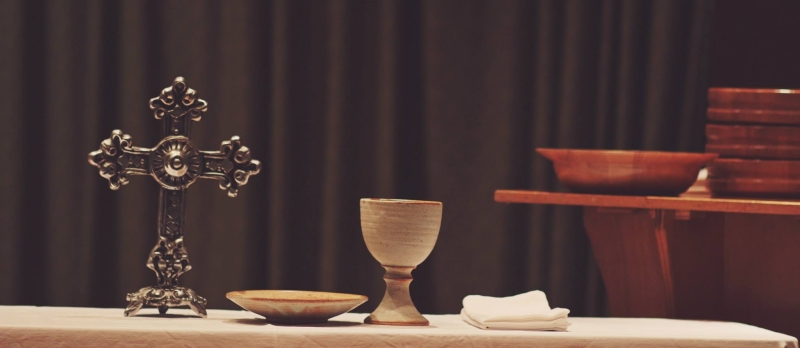(Photo Credit: Jewett Photography – DFW Photographers http://www.jewettphotography.com/)
This is a great series of posts from R. Scott Clark on communion, how it has been desecrated through historical innovations, but then on the other side of the spectrum memorialized and in many cases completely trivialized in the larger, popular evangelical world. He then offers what is the historic Reformed view, a recovery of this means of grace.
http://heidelblog.net/2015/05/heidelberg-75-the-supper-is-more-than-a-memory/ (Part 1)
“We have no promise in Scripture that the bread and wine become anything more than bread and wine. There is no clear teaching in the church, prior to the 9th century, that, in communion, the bread and wine become anything other than bread and wine. Even then, Radbertus’ revolutionary doctrine was hotly and effectively contested by Ratramnus. We certainly find no biblical teaching or even any ancient Christian teaching to support the idea that ministers are priests and what they offer is memorial, propitiatory sacrifice of our Lord’s body and blood (Trent). We rightly reject this as blasphemous assault on the finished work of Christ and a desecration of the Holy Supper.”
http://heidelblog.net/2015/05/heidelberg-75-the-supper-is-more-than-a-memory-2/ (Part 2)
“In reaction, however, to Rome, Zwingli and many Reformed Christians influenced by his conception of the Supper, especially since the 19th century, have lost something of the mystery of the Supper. Many American evangelicals and Reformed Christians with whom I have spoken about the Supper think of it solely in funereal terms. It is an opportunity to grieve over their sins, to grieve over the reality that our sins sent Christ to the cross, and it is a time for repentance. I am confident that this is the principle reason why many Christians instinctively oppose more frequent communion. To be sure, they are also concerned that the Supper should be distinct from the Roman Mass but the most frequent objection I have heard and read for more than 25 years to more frequent communion (e.g., Calvin’s goal of weekly communion) is that were the Supper to be received weekly it would lose its significance. On the face of it, this objection is incoherent.”
http://heidelblog.net/2015/06/heidelberg-75-the-supper-is-more-than-a-memory-3/ (Part 3)
“Christ cannot be ignored. To refuse to eat his flesh is death. To eat his flesh and to drink his blood is true food and drink, true communion, and eternal life. Radbertus and Rome (see part 1 of this series) attempted to turn the sacrament into the thing signified (Christ), thus destroying the sacrament. The Zwinglians reduced Christ’s feast to a funeral. The Reformed Churches, however, receive the Supper as sign and seal of the gospel and of the covenant of grace, as a true fellowship with the risen Christ, as a true, mysterious and wonderful feast. It is not that we have climbed into heaven but that Christ has come down out of heaven, as it were, and taken us to himself. It is he who feeds us and not we ourselves. As surely as we eat bread and wine, as surely as we receive them from the hand of the minister, so sure is Christ’s promise that we believers belong to him and he to us.”
Nothing to me illustrates the trivialization and commercialization of communion in American evangelicalism more than this picture of the elements at one church … one could call it, “I am Jack’s Single-Serving Communion Packet.” (Fight Club reference? 😉 )
(Photo Credit: Anonymous)



Leave a Reply